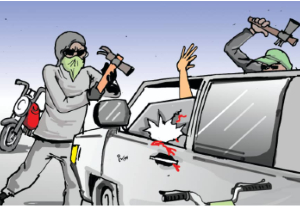The Junior Doctors Association has dismissed reports that doctors refuse postings to the three Northern regions over poor conditions there.
The Northern regional Deputy Director of Public Health, Dr John Abenyeri revealed no doctor choose to serve in any of the health centers under the Ghana Health Service.
“They were given the opportunity to choose where they would like to go to and it happened that no doctor chose the Northern Region,” he said at a consultative meeting with Health Minister, Kweku Agyeman Manu who was on a three-day working visit.
Dr John Abenyeri said he found it even more shocking that none of the doctors trained at the Region’s only medical school at University for Development Studies chose to serve in the North after they completed their housemanship.
But in a statement, the Junior Doctors Association described the publication as misleading stating that 30 out of 36 Doctors trained in the North have accepted postings to health facilities in the North.
Below is the full statement by the Junior Doctors Association
The attention of the leadership of the Junior Doctors’ Association has been drawn to a misleading news item being carried by certain media houses recently. This is with respect to a purported blanket refusal or unwillingness of doctors who have been posted to the three Northern Regions to work in the region.
While the current national doctor: patient ratio is abysmal and falls way below the internationally accepted standard, it dips further in the three regions in the North
In the said news item it was further purported that even doctors who trained in THE UNIVERSITY OF DEVELOPMENT STUDIES (UDS) do not even accept postings to the three regions in the North despite a greater proportion of Doctors trained there coming from the said regions.
RELATED POSTS
GMA to strike over conditions of service
Nov 13, 2017
Doctors to put on security stamps from 2018
Oct 24, 2017
MoH posts 130 doctors to KATH
Sep 15, 2017
From enquiries made from our colleagues in said places we’ve gathered that from the 36 UDS trained Medical Officers posted last year from the 2014 graduating class 30 have confirmed posting to the public sector: 21 in the Northern sector(UE, UW, NR, BA) and 9 in south (VR, AS, CR, GR, ER) NR (8), UE (8), UW (3), BA (2), AS (3), ER (1), VR (2), GR (2), CR (1) . These facilities include CHAG hospitals, GHS and Tamale Teaching Hospital.
We agree tacitly with the fact that there is a gross shortage of doctors serving in the three regions in the North. This problem has persisted for ages and much can be done without the media fanfare that is usually associated with postings.
To start with, we believe that rural postings in general should be made attractive to all staff. The Health Minister, Hon Agyemang Manu, should be lauded for the bold step he has taken in directing that incentives should be made available to doctors who get posted to less attractive places.
These incentives should however not be restricted to just monetary support. Other ways should include an earlier release of qualified doctors for post graduate training to further boost health delivery in these areas. This will encourage doctors who end up in these less-resourced areas and have to suspend their postgraduate education because no one is replacing them for the period. Hence more doctors will move to these areas so that they can enjoy that benefit.
Also, a comprehensive retooling and equipping of facilities in these less-resourced areas will extremely improve health delivery. Sending a qualified doctor to facility with no operating theatre or without a well-stocked pharmacy/dispensary will reduce the chap to a referring physician at best ( a tag no doctor enjoys) or at worst, become an emotional wreck as he/she looks on as innocent patients die because he/she does not have the resources to intervene.
Government could also adopt measures employed by CHAG facilities which seem to have found a way around these issues and usually seem to have their facilities well resourced.
Furthermore the GMA submitted a document that comprehensively addressed these issues to the Health Ministry. This document and its ideas have yet to be implemented.
That being said, the Junior Doctors Association, together with the Ghana Medical Association is fully committed to partnering Government in ensuring that these deficiencies are met and are ever ready to respond to the clarion call whenever and wherever it is sounded.
General News of Friday, 2 February 2018
Source: starrfmonline.com













